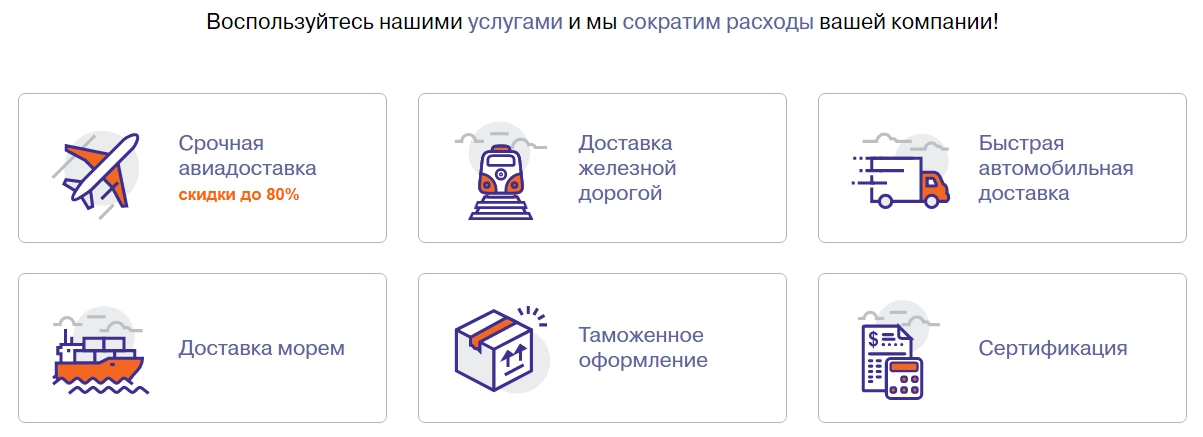How Automated Systems are Revolutionizing Freight Shipping
How Automated Systems are Revolutionizing Freight Shipping
Blog Article
The logistics industry, particularly cargo shipping, is experiencing a significant shift, propelled by the constant advancement of AI-powered systems. As companies compete for optimization and speed in shipping methods, automation stands at the forefront of this revolution, revolutionizing how merchandise are shipped across the international markets. From AI-powered trucks to advanced tracking systems, the dynamism of this industry is unmistakable, providing substantial improvements in speed, reliability, and cost-effectiveness.
Redefining Optimization with Mechanization
At the center of this digital surge lies the implementation of mechanization in freight delivery systems. Old-fashioned approaches often faltered under the pressure of errors and manual error. However, cutting-edge AI-driven systems deliver advanced solutions that enhance workflows.
One noteworthy improvement is in the area of aviation-based shipping, where AI-powered systems facilitates in coordinating intricate logistical operations that involve route mapping and aviation traffic control. This not only speeds up the workflow but also enhances reliability by minimizing potential operator errors.
Advanced tracking features are another boon. Current tech allows for live observation of shipments, which ensures companies and clients aware about the whereabouts of their items at all times. This transparency is crucial in cultivating confidence and reliability in freight distribution services.
Minimizing Costs and Optimizing Customs
AI-powered systems advances into the complex workflows of customs processing, typically a bottleneck for freight movement due to its complex regulations and possible hold-ups.
Modern AI-integrated frameworks equipped with data-driven insights capabilities can efficiently analyze huge amounts of records and ensure adherence with government policies quicker than previously. This cutting down in time cuts down on operational expenditures substantially, showcasing a direct financial advantage that companies can utilize.
Optimizing Logistics with Big Data
Additionally, the implementation of predictive modeling reinvents the method toward logistics and customs. By analyzing historical records and real-time patterns, AI-powered technologies predict problems and enhance workflows to be more consistent and seamless.
Enterprises tracking instant information can execute well-calculated choices that naturally reduce uncertainties linked to border clearance setbacks.
Sustainability Aspect
Automated technologies also contribute positively to environmental preservation in shipment movement. More precise and effective path planning reduces unnecessary resource expenditure and decreases carbon.
Automated fleet systems are steadily adaptable with renewable fuels and electric propulsion, synchronizing freight transport strategies with widespread green goals.
Boosting Client Loyalty
The self-operating innovation optimizes not just supply chain efficiency but also consumer loyalty. The capability to monitor orders in instantaneously, experience minimized setbacks, and enjoy minimized expenses transforms client experience greatly.
Swift, open, and seamless delivery systems are more prone to foster repeat business and ongoing business, demonstrating that modern advancements is indispensable in present cargo shipping frameworks.
Additionally, as machines execute repetitive operations more efficiently, organizations can allocate workforce resources to sectors needing problem-solving and strategy, thus improving operational excellence as a whole.
Moving Forward: The Self-Operating Horizon
The revolutionary impact of AI-driven systems in logistics transport guarantees an exciting outlook for freight management. As companies advance to harness these systems, they improve their competitive edge by providing more efficient, safer, and more affordable shipping options.
Eco-conscious innovations further broaden the attractiveness of self-operating systems, aligning sector operations with eco-friendly initiatives.
An Innovative Phase in Cargo Delivery
In principle, the integration of machine-powered solutions in freight delivery introduces a vast array of prospects aimed at making shipping not only faster but also more safe and less financially burdensome.
The strategic use of advanced analytics in optimizing regulatory formalities further reinforces the performance of automated solutions in reshaping traditional logistics landscapes.
Automation: The Future of Cargo Shipping
Freight shipping is transitioning decisively into a progressive phase driven by self-operating systems—a reflection to humanity’s relentless quest of innovation.
With ever-evolving breakthroughs, the capacity to reshape international commerce patterns persists, signaling an hopeful roadmap towards an unified and well-structured horizon in freight transport.
More info about avia dostavka visit this popular resource.